For every angler who plucked their first trout from a black-bottomed beaver pond high in the Rockies under the watchful eye of a father or a grandfather, this day is for you. For every fisherman or fisherwoman whose first bluegill came to hand after it pulled a bobber under water on some lonely little stream shaded by sweet gum trees, this day is for you, too.
This is the day your water—your sacred, special water—regained the protections it deserves. Thanks to a thoughtful and carefully crafted new clean water rule, America’s headwater streams are once again protected under the Clean Water Act.
What does this mean? It’s simple, really. Anyone who wants to dredge a small stream in the Appalachians, or run a road crossing through a creek in the Cascades or divert a small stream in the Rockies will have to apply for a permit to do it. It’s common sense, really. These small waters—these so-called Waters of the United States—are the genesis of America’s great rivers and home to vital spawning and rearing habitat for our country’s wild and native fish. They trickle down the mountains as snowmelt, rainwater and spring seeps, and they end up far downstream, where they’re used to water our crops, cool our industrial generators … or supply our communities with fresh, clean drinking water.
Chris Wood, president and CEO of Trout Unlimited, talks about the new clean water rule and its importance to anglers, farmers, industrialists and anyone who turns on a tap.
Anglers understand the cultural and economic importance of clean water, perhaps because we spend so much time standing in it, casting over it and pulling lively trout, salmon, bass and crappie from it. To us, protecting the headwaters is a no-brainer, and we’re grateful to the Environmental Protection Agency and the U.S. Army Corps of Engineers for restoring protections to these important waters under the Clean Water Act.
For the first 30 years, the CWA protected these waters, but in the 2000s, two Supreme Court rulings and some misguided management directives from politicians removed the protections granted to our headwaters. The court ruled that, if these waters are to be protected, there must be a proven connection between these small, sometimes-intermittent streams and the “navigable” rivers they feed.
That, of course, is easy to prove, and the EPA and the Corps did just that when it released the draft clean water rule in 2014. During the lengthy public comment process, nearly a million Americans took the time to chime in—the vast majority in favor of the proposal. And credit the two agencies for listening to constructive criticism from Congress and others who were concerned the new rule would represent “overreach” or put an undue burden on industrial and agricultural interest. The final rule—released today—is a rule for everyone. It safeguards the most important habitat for trout, salmon and other wild and native fish across America. It protects the sources of our iconic rivers and the integrity of our downstream water resources. It doesn’t regulate every farm pond or irrigation ditch, and it doesn’t make every wet spot on private land subject to federal oversight.
It simply protects the waters that contribute to our sporting culture, our national economy and our cities and towns that depend on clean, fresh, safe drinking water.
Unfortunately, efforts to scuttle the new rule—to defund its enforcement or to require the EPA and Corps to scrap the rule and start over—continue to move forward in Congress. It falls to the rest of us to tell those in Congress to let this rule stand… to let it protect the waters that make good fishing happen, to let it protect the sources of our mighty rivers and to let it protect the water that comes out of our taps. Tell Congress to protect our nation’s clean water by letting this important rule stand. Tell your delegation to let the Clean Water Act—one of the most important laws ever created by Congress—do the job it was intended to do.
Clean water shouldn’t be a political issue. Protecting clean water is a national responsibility, and those we elect to govern should bear this responsibility and let the rule do its job.



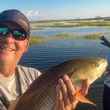


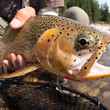


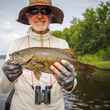
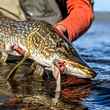



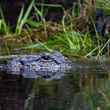

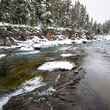
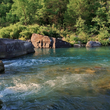

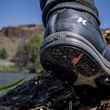
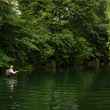

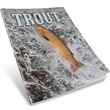

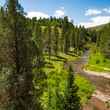
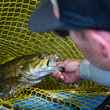
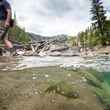
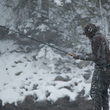


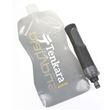
Comments
Jack Donachy replied on Permalink
Terrific article, Chris. Thanks for helping get the word - and the perspective - out there.
Tight lines,
Jack Donachy
Bob Rusher replied on Permalink
Thank you.
Pages